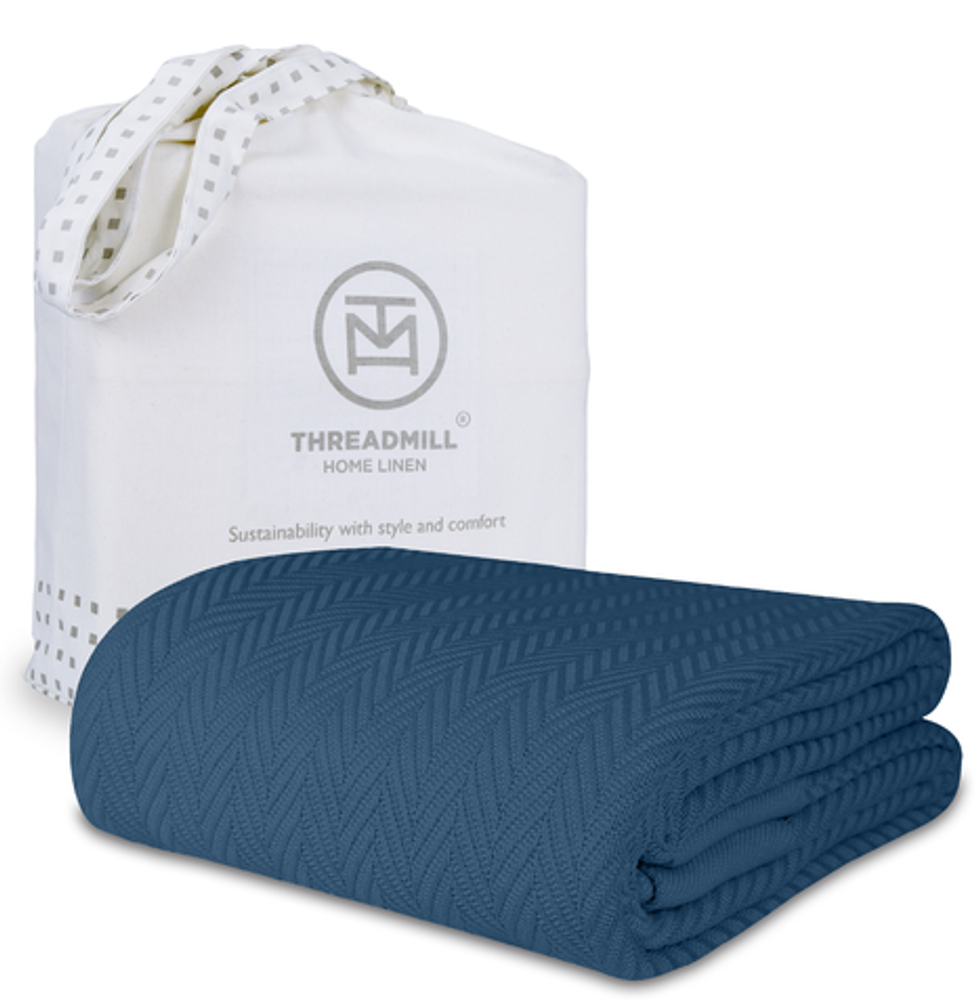.
The ethical issues associated with the home goods industry are well-documented, but the manufacturing of home goods is also behind a great deal of environmental damage. Several companies have formed to help combat these issues, like Threadmill, which creates ethical, environmentally-friendly luxury bed sheets and other products.
The mission of Threadmill is to provide customers with ethically-made home goods. The team was inspired by the ethically-made, organic products that have taken hold of several other sectors. “Studies have shown that nearly a third of consumers worldwide are willing to pay more for a sustainable alternative to everyday consumer products because of the recent shift towards an environmentally-conscious lifestyle,” explains Gopi Balakrishnan, the Director of Threadmill Home Linen. “Threadmill’s products offer a sustainable alternative without the premium price.”
Sustainable, luxurious, and affordable
However, some consumers think that choosing to purchase environmentally-friendly products means sacrificing the quality of the products they buy, and this is not the case. With Threadmill, there is no compromise in the quality of their products nor the wide range of designs they offer. Home goods, like bedsheets, towels, and more, are a fundamental part of the decorative identity of your home. You shouldn’t have to choose between something that fits your home’s style and something that is environmentally responsible.
As such, Threadmill prides itself on providing superior products at an accessible price in an environmentally-friendly way. Threadmill’s products are products that customers will want to buy, can buy, and won’t feel bad about buying. Few luxury home goods companies can provide products that fulfill all three qualities, but with Threadmill, you are only getting the best of the best.
Threadmill’s efforts for sustainability
One aspect of Threadmill’s business model that allows it to achieve these ambitious environmental goals is that it runs a vertically-integrated factory. Every part of the production process is managed directly by Threadmill. “When businesses outsource an aspect of their production process, they lose control over its standards,” explains Balakrishnan “Through vertical integration, we can control how all raw materials are sourced and ensure that labor and manufacturing processes are not only up to standards but exceed them.”
Threadmill’s factory is powered entirely by solar and wind energy, representing their commitment to supporting renewable energy. The manufacturing sector accounts for as much as 74% of total energy consumption by the industrial sector. This figure represents one of the most significant uses of fossil fuels and contributors to greenhouse gas emissions. By powering its factory entirely with renewable energy sources, Threadmill reduces its reliance on fossil fuels and significantly reduces its carbon footprint.
The team at Threadmill also addresses the issue of plastic pollution with their products, making an active effort to limit or not use plastic packaging altogether. Threadmill’s products are packaged with a reusable tote bag that is not only better for the environment but also gives the product a very sleek, upscale appearance. Threadmill offers luxury, environmentally-friendly products, and traditional plastic packaging isn’t good enough for either.
How Threadmill’s efforts reflect in their products
Threadmill’s best-selling products are their bedding options, a full line of which can be purchased on their shop on Amazon. They sell sheets in every bed size, ranging from 300 to 1200 thread count. With Threadmill, customers can sleep like the softest material in the world surrounds them without purchasing a product that contributes to environmental destruction. Since these sheets are made to exceed all environmental and ethical standards, they can rest assured.
However, it isn’t just bedsheets that Threadmill offers — they offer other products like bath needs, napkins, blankets, and more. Of course, all of these products are made with Threadmill’s environmentally responsible manufacturing process using only the highest-quality, sustainable materials. The result is a product that feels great without any of the environmental impact the home goods industry usually has.
Threadmill truly is leading the industry in offering luxury home goods made with the most stringent environmental and ethical standards in mind. The company’s vertically integrated business model ensures that every aspect of the production process is as sustainable and ethical as possible. “At Threadmill, we are changing the home goods industry one thread at a time,” says Balakrishnan.




 StableDiffusion
StableDiffusion StableDiffusion
StableDiffusion StableDiffusion
StableDiffusion Photo by
Photo by  Photo by
Photo by  Photo by
Photo by 
 Photo by
Photo by  Photo by
Photo by  Photo by
Photo by  Photo by
Photo by  Photo by
Photo by 











